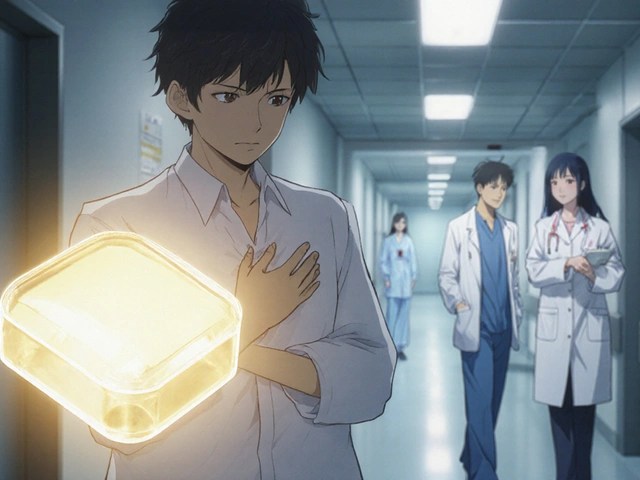Cognitive Decline: What It Is and How to Slow It Down
Most people notice a few forgetful moments as they get older, but when those moments become frequent, it could be cognitive decline. It’s a gradual loss of thinking skills, memory, and the ability to focus. Age, genetics, high blood pressure, diabetes, and lack of mental activity can all push the brain into this downhill lane.
Recognizing Early Signs
Early warning signs are subtle. You might walk into a room and forget why you’re there, misplace items more often, or struggle to find the right word in a conversation. Trouble following a news story or keeping up with a favorite TV series is another clue. If you notice these patterns for several weeks, it’s worth taking a closer look. A quick self‑check can be as easy as writing down a short list of recent events and seeing how many you recall after a day.
Medical conditions like sleep apnea, thyroid disorders, or depression can mimic cognitive decline, so a doctor’s visit helps rule out other causes. Blood tests, a brief cognitive exam, and a review of your medicines give a clearer picture.
Practical Ways to Support Brain Health
Good news: lifestyle tweaks can slow the decline and even improve brain function. Regular aerobic exercise—walking, cycling, swimming—for at least 150 minutes a week boosts blood flow to the brain and supports new neuron growth. Simple strength training twice a week adds extra benefit.
Keeping the mind active matters, too. Crossword puzzles, learning a new hobby, or even playing card games challenge the brain. You don’t need a fancy program; daily mental stretch keeps neurons firing.
Nutrition plays a big role. Foods rich in antioxidants (berries, leafy greens), healthy fats (salmon, walnuts, olive oil), and vitamin B12 support memory. A balanced plate with color and variety does more than keep you full—it feeds your brain.
Some people turn to supplements for extra support. For example, European chestnut extract has been studied for its antioxidant properties and may help protect brain cells. If you’re curious about chestnut supplements, check the latest evidence and dosage guidelines before adding them to your routine.
Sleep is non‑negotiable. Aim for 7‑9 hours of uninterrupted rest. Poor sleep disrupts the brain’s waste‑clearance system, making memory lapses more likely.
Stress management can’t be ignored. Chronic stress releases cortisol, which harms the hippocampus—the memory hub. Simple practices like deep breathing, short walks, or a few minutes of meditation each day lower cortisol levels.
Finally, track any medication changes. Some drugs—especially those with anticholinergic effects—can worsen memory. Talk to your doctor about alternatives if you suspect a prescription is affecting your clarity.
Putting these steps together creates a brain‑friendly lifestyle. You don’t need to overhaul everything at once; start with one habit—say, a 20‑minute walk after dinner—and build from there. Over weeks and months, the cumulative effect helps keep cognition sharp.
Remember, early action matters. Spotting the first signs and adopting supportive habits gives your brain a better chance to stay resilient, even as the years roll on.
Alcohol Dependence Syndrome: Long-term Effects on Cognitive Function
Alcohol dependence syndrome chips away at your ability to think, remember, and make decisions—often for years before you notice. This article digs into how heavy drinking actually changes the brain, why it’s not just about short-term memory lapses, and what science says about long-term risks like dementia. Get practical tips on spotting early warning signs, plus real ways to help your brain recover if you (or someone you care about) decide to stop drinking. The damage isn’t always set in stone, but ignoring it won’t make it go away.





